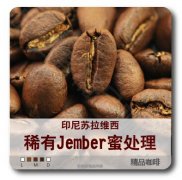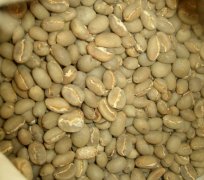What are the characteristics of organic coffee beans

In many parts of the world, growers use pesticides to control the growth of coffee pests, and moist and foggy coffee at high altitudes are more vulnerable to fungi, so growers often use pesticides to treat them. Many people believe that coffee can be called organic coffee as long as synthetic pesticides, herbicides and chemical fertilizers are not used during its growth. In fact, it can be called organic coffee only if it has been certified by a third party (except coffee producers and buyers).
Organic Coffee Organic Coffee and authorized Organic Coffee Certified Organic Coffee is licensed by a third party and is grown without chemical raw materials without pesticides, pesticides, herbicides and artificial food additives during the growth of coffee trees. The detection, planting, cultivation, harvesting and production of soil water quality must meet the organic conditions and the process must be strictly controlled. It is a high-quality coffee produced in harmony with nature, which is of great benefit to health and environmental protection.
Only a small part of the world's coffee is truly organic certified coffee, because the certification process takes a long time, about three years. And such a deal would reduce coffee production by as much as 50%. So when coffee growers decide to do organic certification, it means that a time-consuming and costly investment begins.
Characteristics of organic coffee:
Organic coffee does not use any insecticides or other chemicals to treat diseases and insect pests or cultivation problems, but uses natural methods, such as natural composting, hedgerow, pruning, etc., to maintain the growth of coffee trees. Use all-natural biological control methods in pest control, such as planting protective trees, and using a variety of other natural farming techniques to ensure the health of coffee trees. Because the sustainability of land, water and the natural ecological environment is an active concern of the organic coffee industry. Organic high-quality coffee is a masterpiece of heaven, earth, and man-weather, soil, and love. It takes five years for a coffee tree to blossom and bear fruit. A pound of coffee needs about 4000 coffee beans, which are harvested manually. Each coffee tree harvests only enough coffee fruit a year to produce a pound of roasted beans, which is rare.
Reasons for choosing organic coffee beans:
1. Protect the next generation: reduce exposure to carcinogenic chemicals such as pesticides and herbicides.
two。 Prevent soil exhaustion: according to the soil Conservation Society, soil loss is seven times higher after chemicals are used and plants that nourish the soil are destroyed.
3. Energy conservation: modern farming is suitable for planting and harvesting crops made of petroleum artificial fertilizers.
4. Say "no" to chemicals: EPA has confirmed that 60% of herbicides, 90% of fungicides and 30% of pesticides are carcinogens. All of these substances can cause cancer and deformities in babies.
5. Protecting farmers: protecting the health of farmers is also one of the responsibilities of society. We must reduce the possibility of farmers being exposed to chemicals. In the third world, the safety of the use of pesticides has been paid less attention, which has gradually become a serious problem.
6. Maintain water quality: farms with mechanized farming will be able to retain quality water for the next generation. Love our land, love our earth! If you like coffee, drink organic coffee.
Important Notice :
前街咖啡 FrontStreet Coffee has moved to new addredd:
FrontStreet Coffee Address: 315,Donghua East Road,GuangZhou
Tel:020 38364473
- Prev

Sulawesi Superior Honey Bean Jember
When it comes to Sulawesi coffee, the more common is Toraja coffee grown by Toraja aborigines, which is usually mellow and fragrant, similar to golden manning coffee, while this Jember honey treatment is also from Sulawesi, but it is a more high-end honey bean! Every time the bean is baked, the smell of honey continues to gush out, making people completely unimagined that it is Sura.
- Next

Indonesia National Treasure Coffee Bean Toraja
Light green unroasted raw Toraja coffee beans, round and plump. Each barrel of Toraja coffee beans has a birth number. Generally, coffee beans are half lentils (left) and Tonaga beans are full whole beans (right). This bucket of 1.5kg Indonesian Toraja coffee beans is worth 2000 Hong Kong dollars. Producing area: Tonaga (Tana Tor) in southwestern Sulawi (South Sulawesi), Indonesia
Related
- Guji coffee producing area of Guji, Ethiopia: Humbela, Shakiso, Wulaga
- What is the most expensive variety of Qiloso in BOP multi-variety group?
- How to store the coffee beans bought home?
- Why are Yemeni coffee beans so rare now?
- Ethiopian Sidamo all Red Fruit Sun Sun Santa Vini Coffee beans
- SOE is mostly sour? What does it mean? Is it a single bean? what's the difference between it and Italian blending?
- Is Italian coffee beans suitable for making hand-brewed coffee?
- How to choose coffee beans when making cold coffee? What kind of coffee beans are suitable for making cold coffee?
- Just entered the pit to make coffee, what kind of coffee beans should be chosen?
- Can only Japan buy real Blue Mountain Coffee? What are authentic Jamaican Blue Mountain coffee beans?

